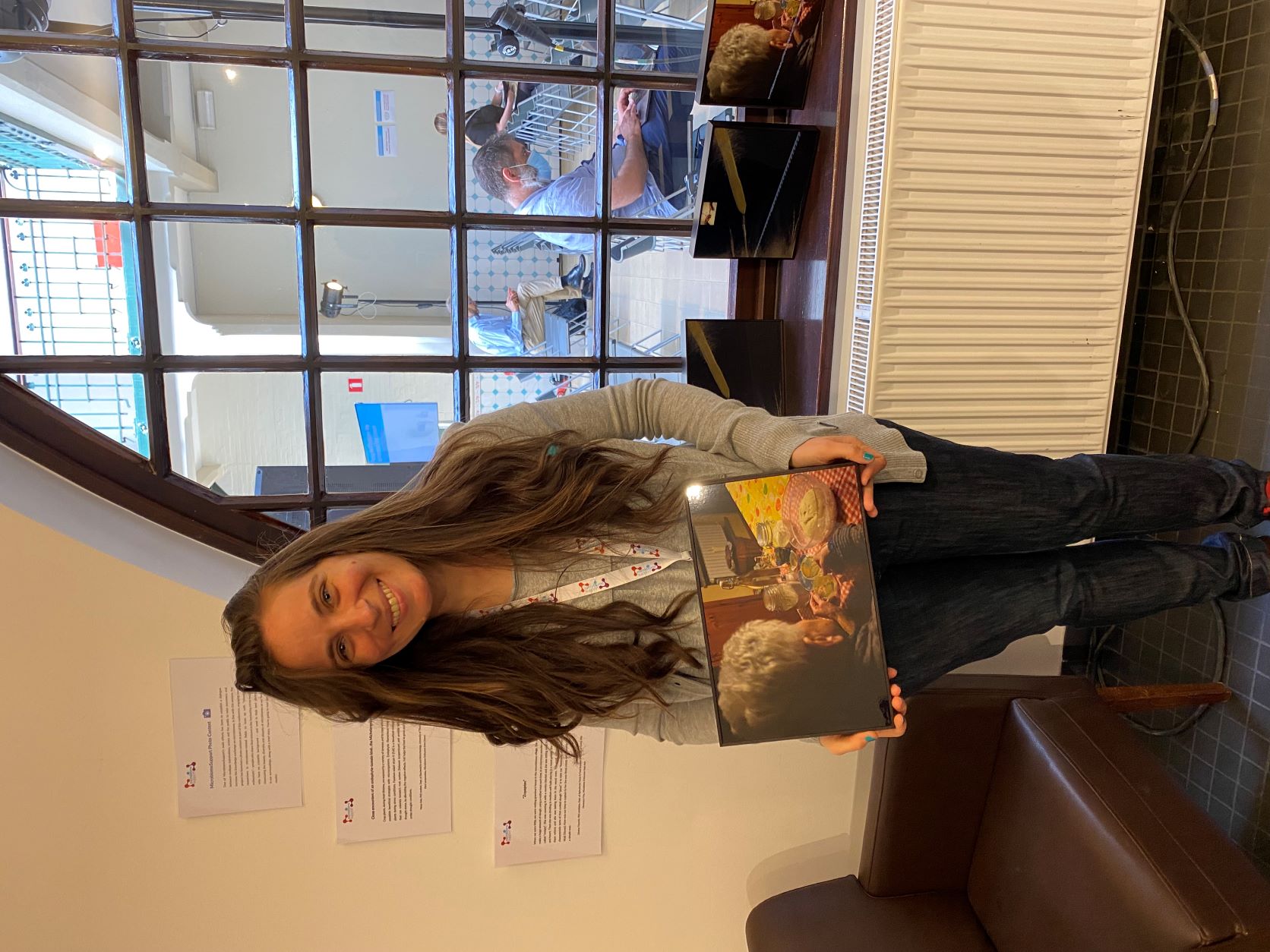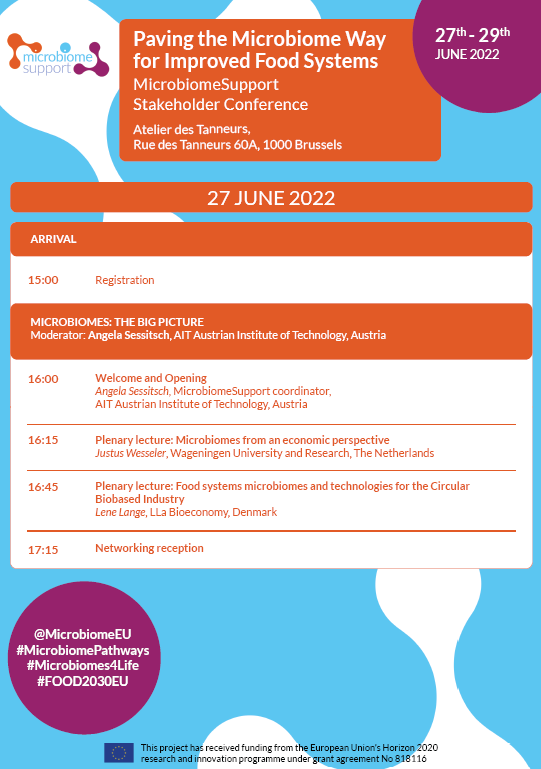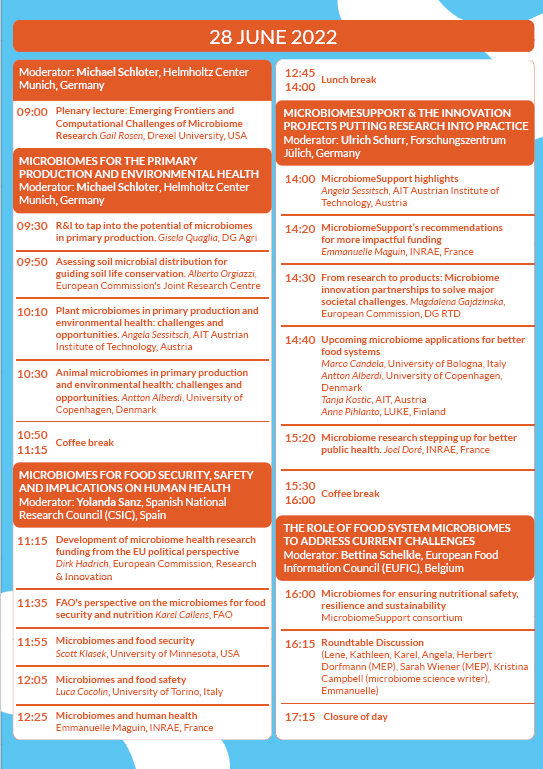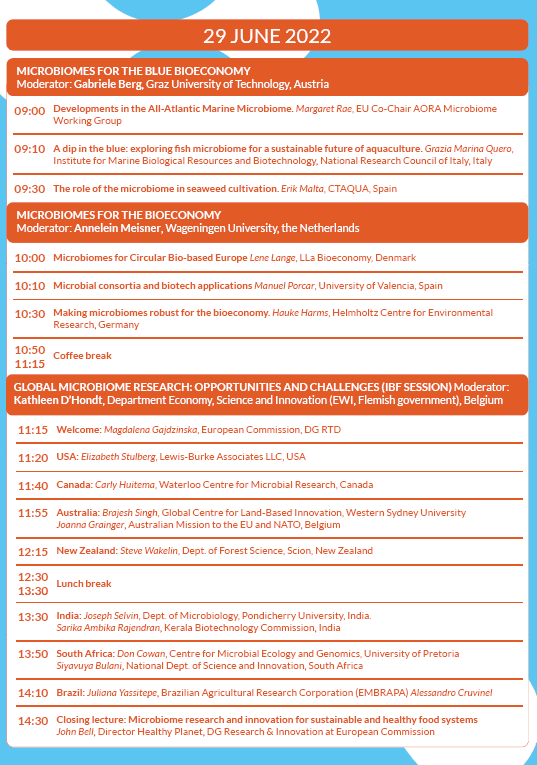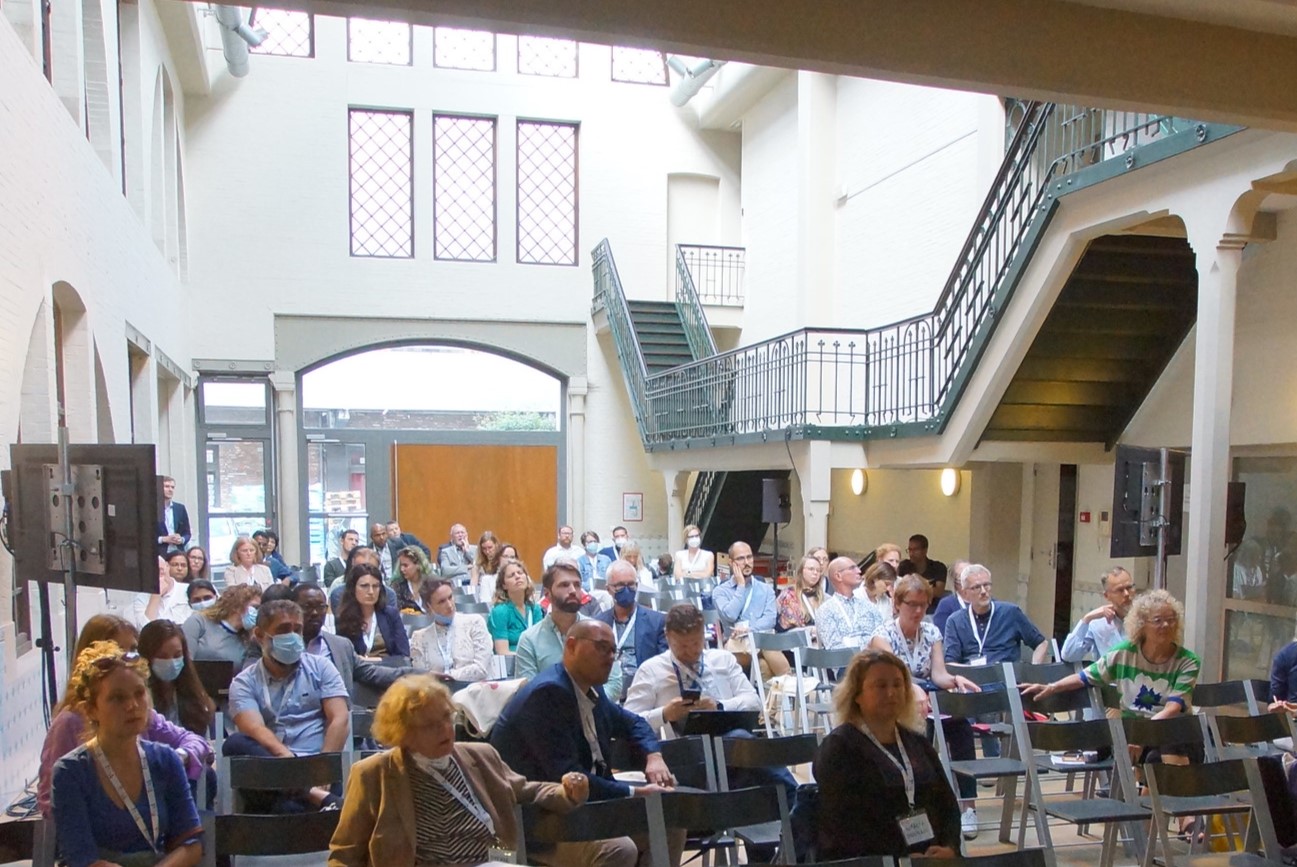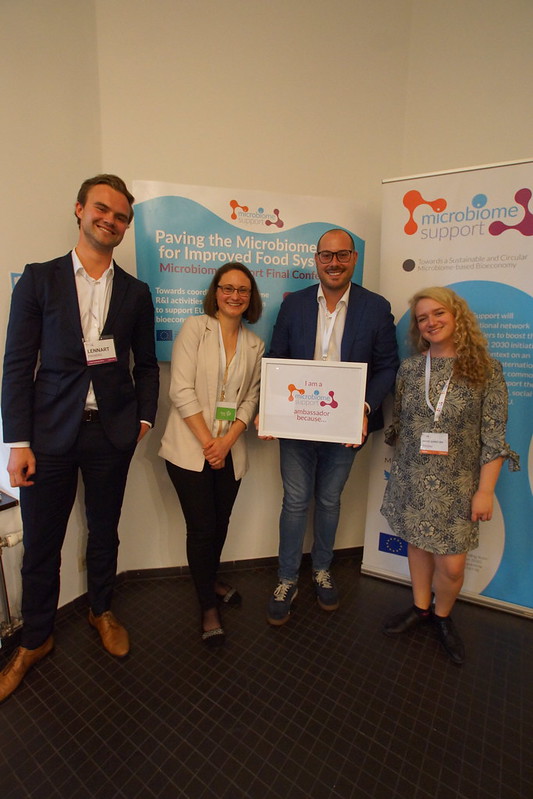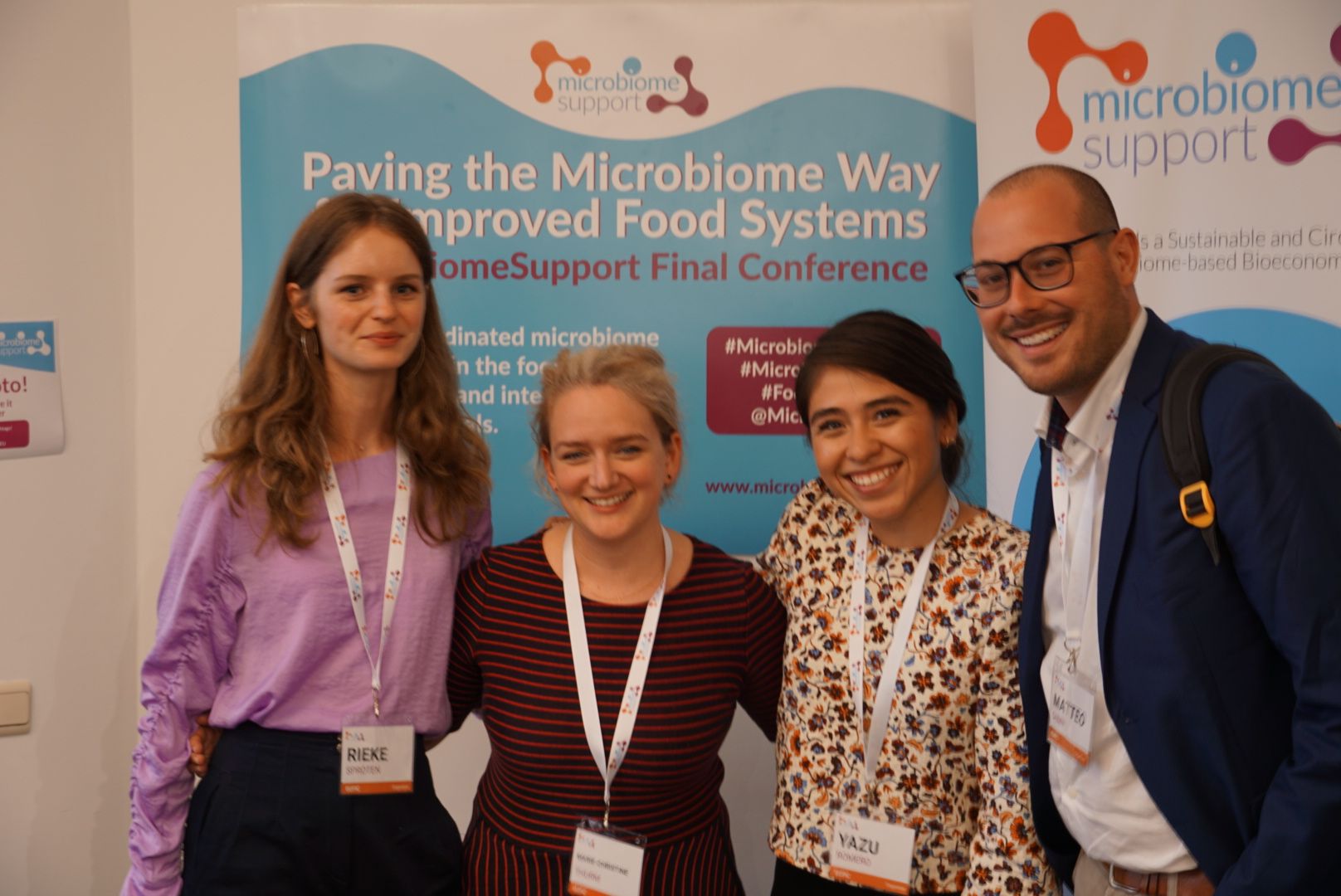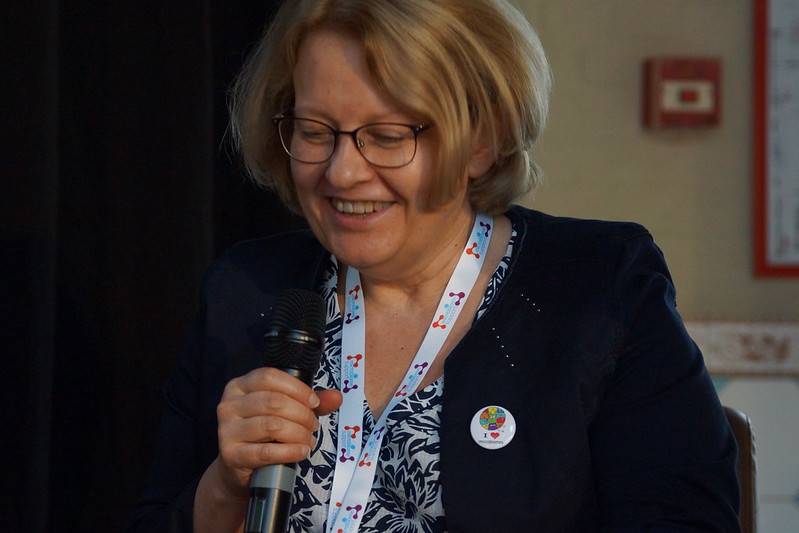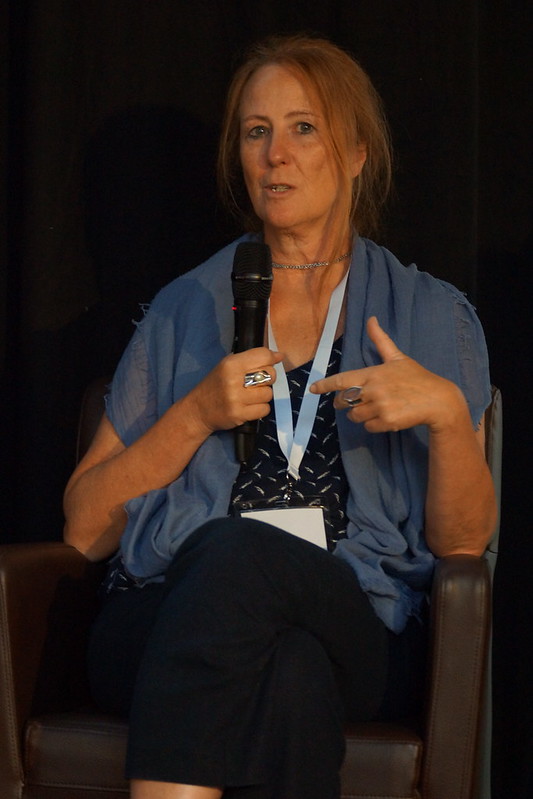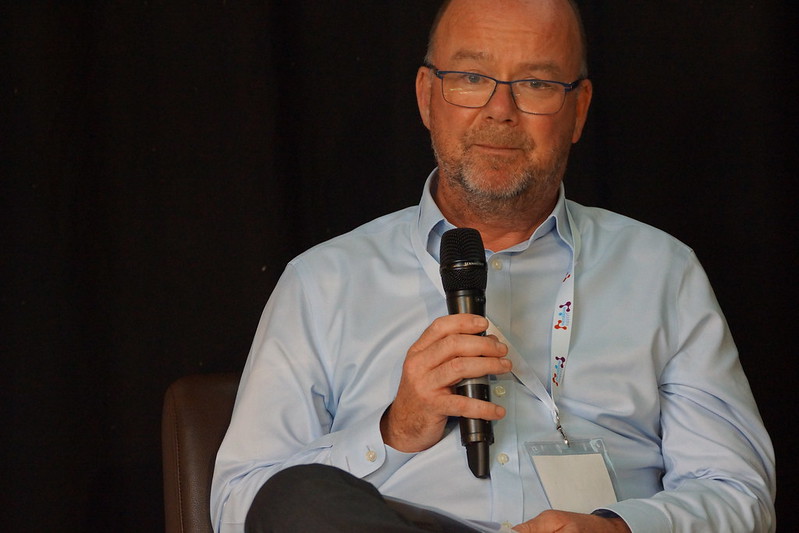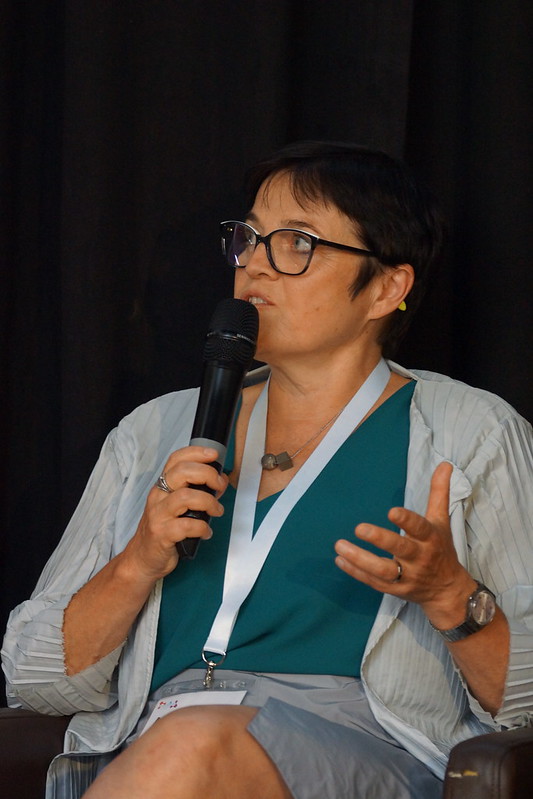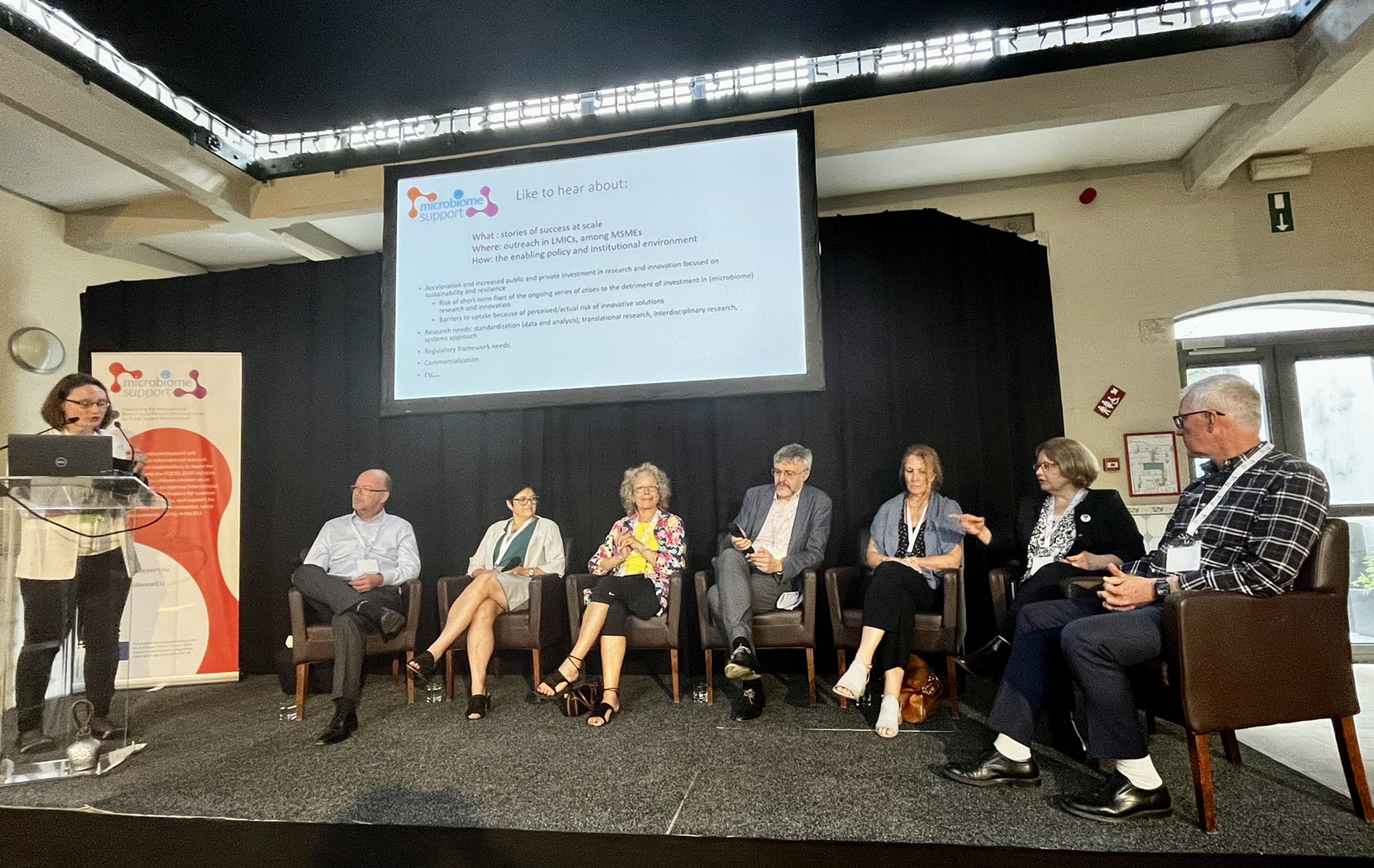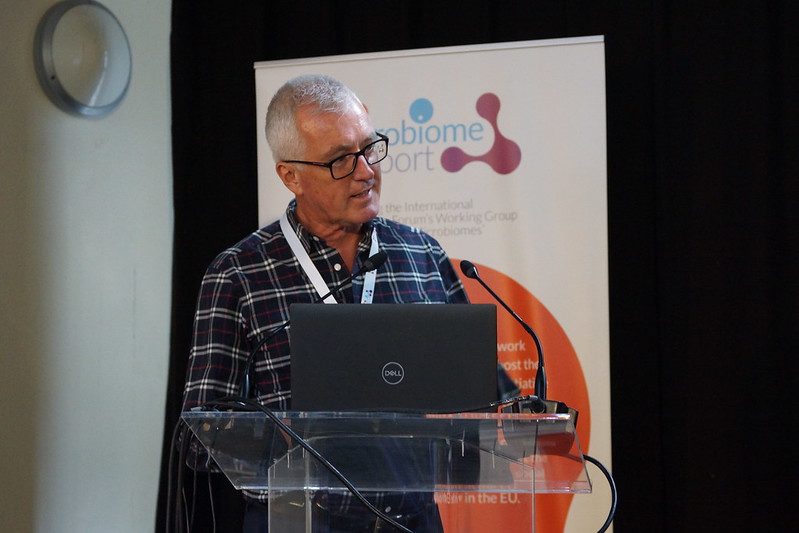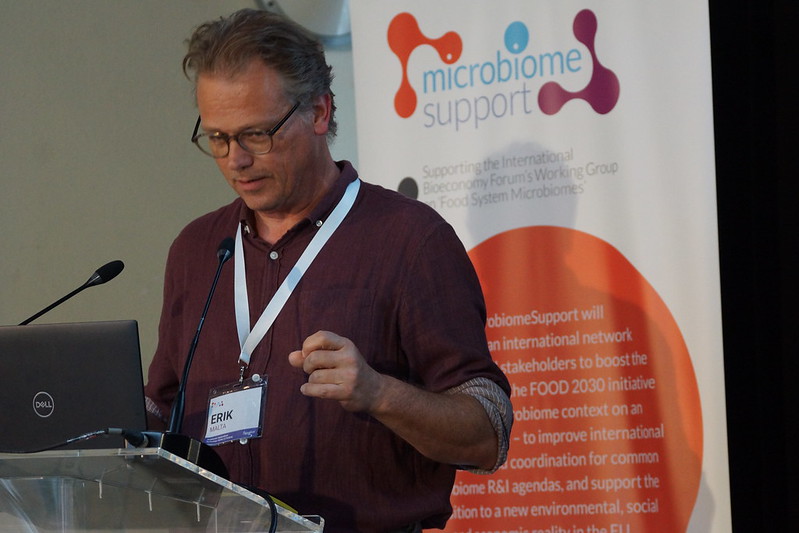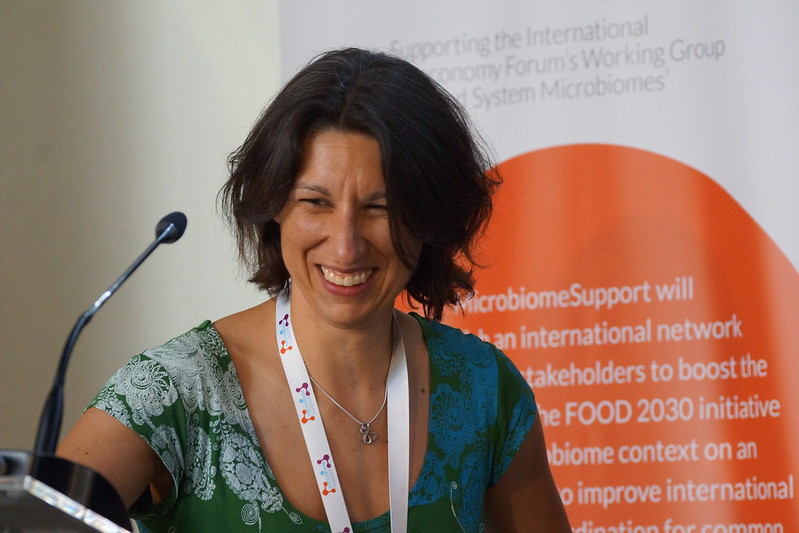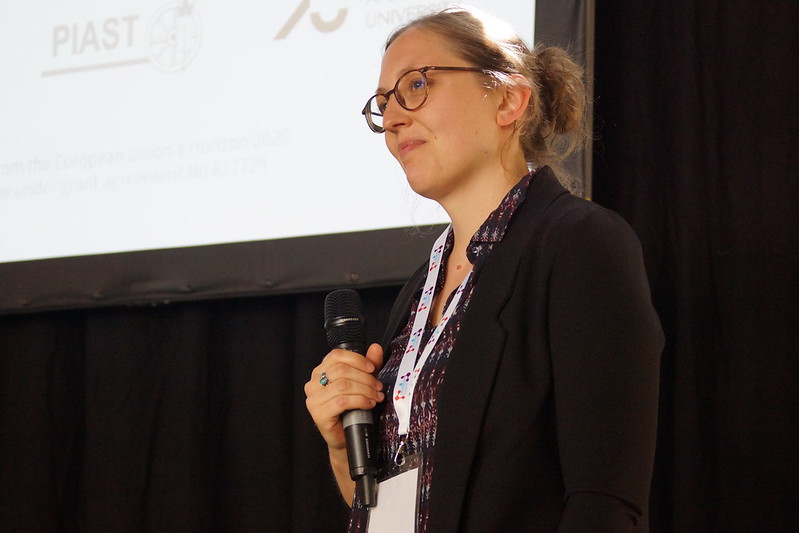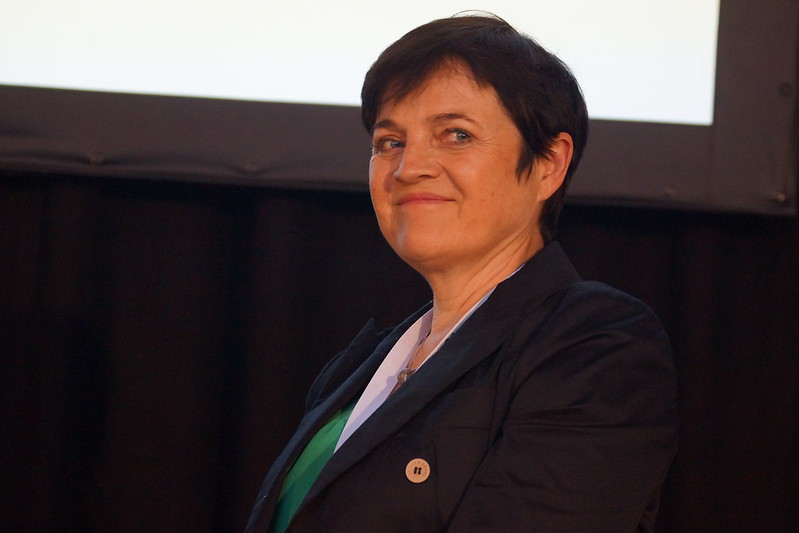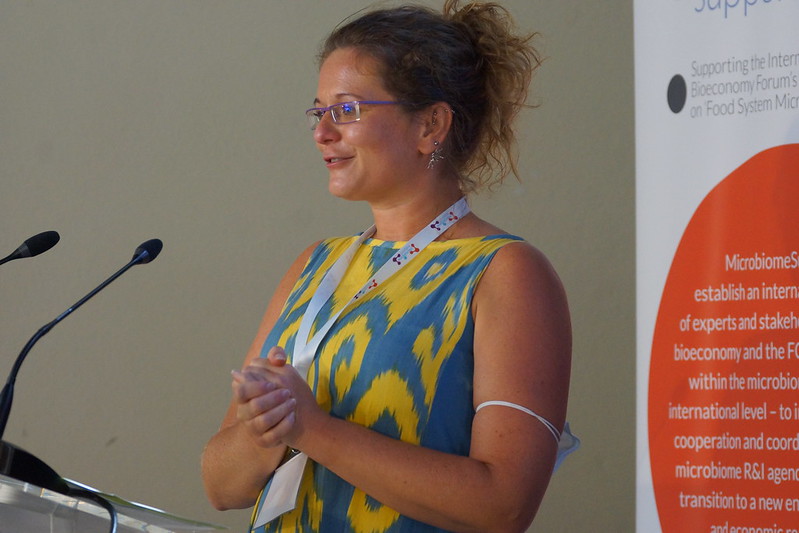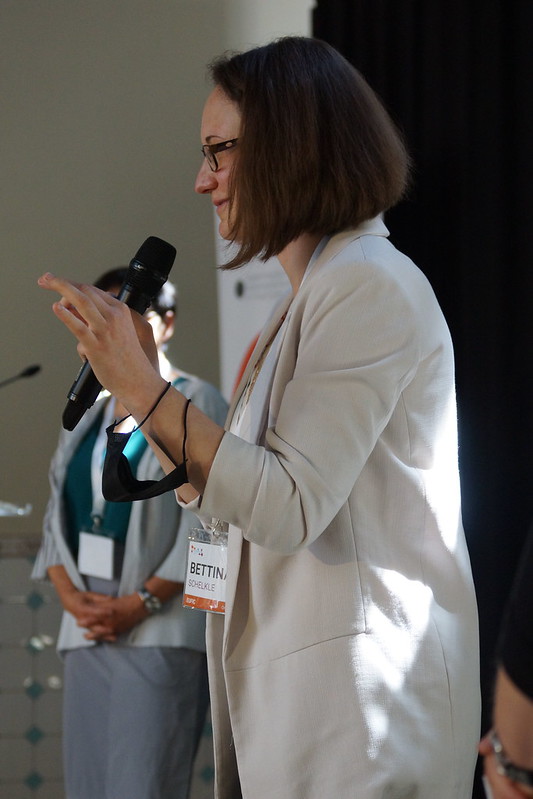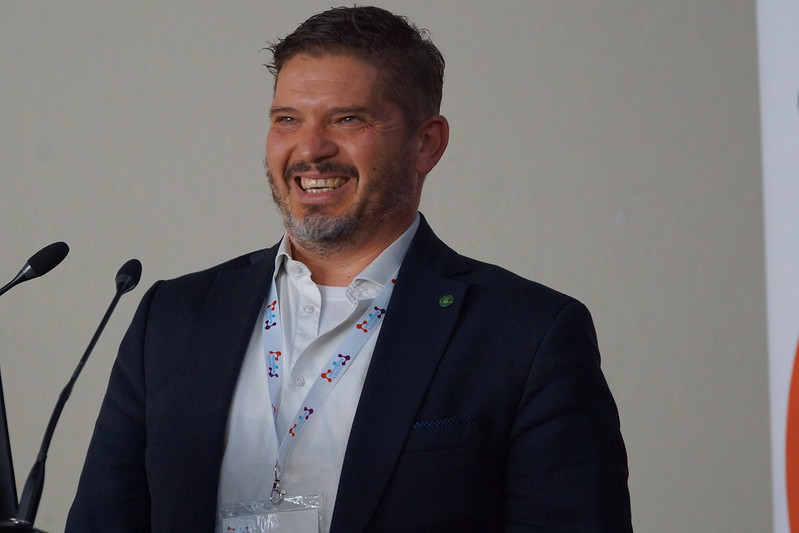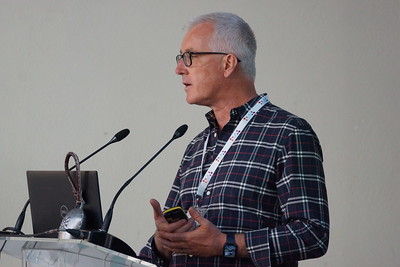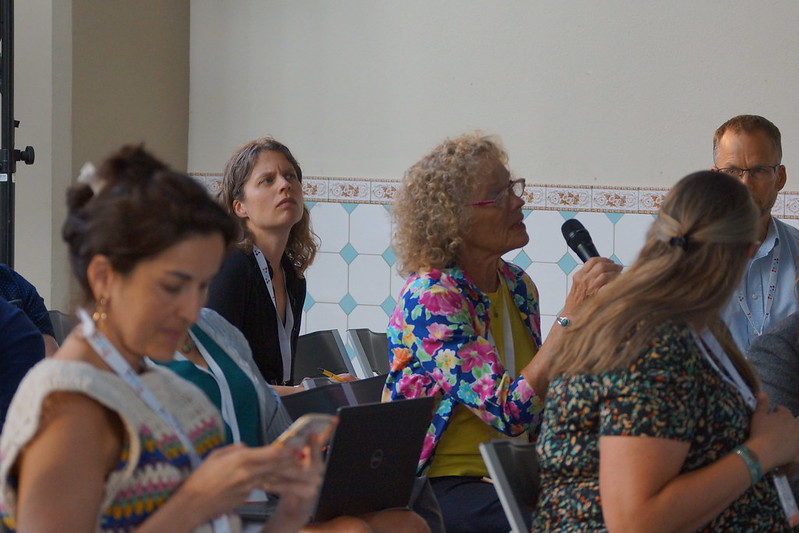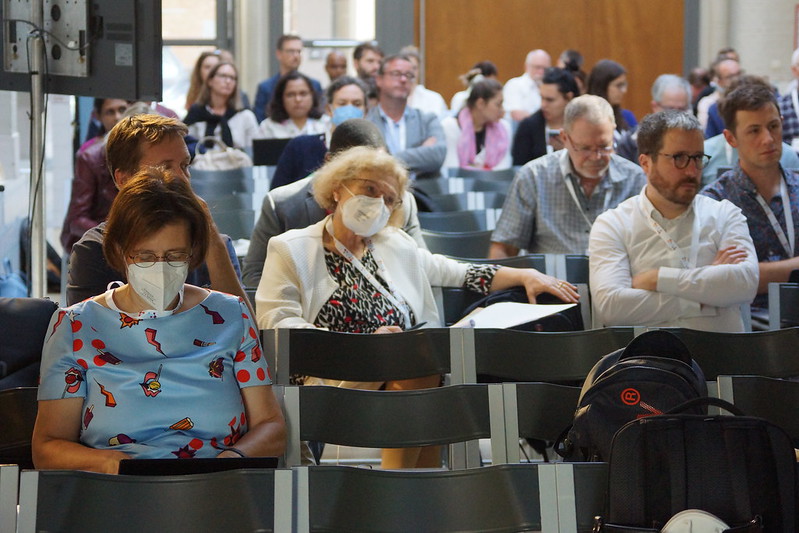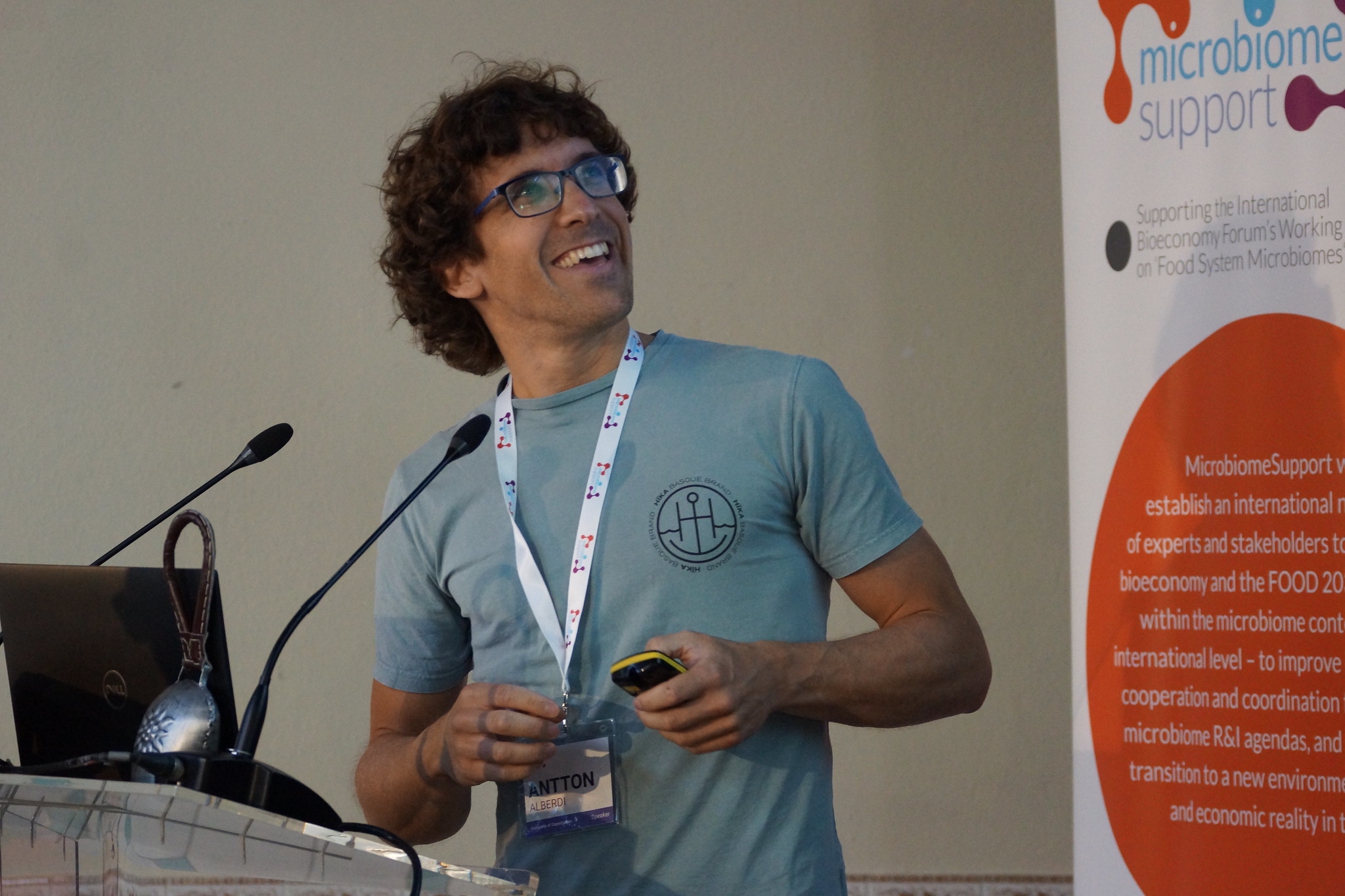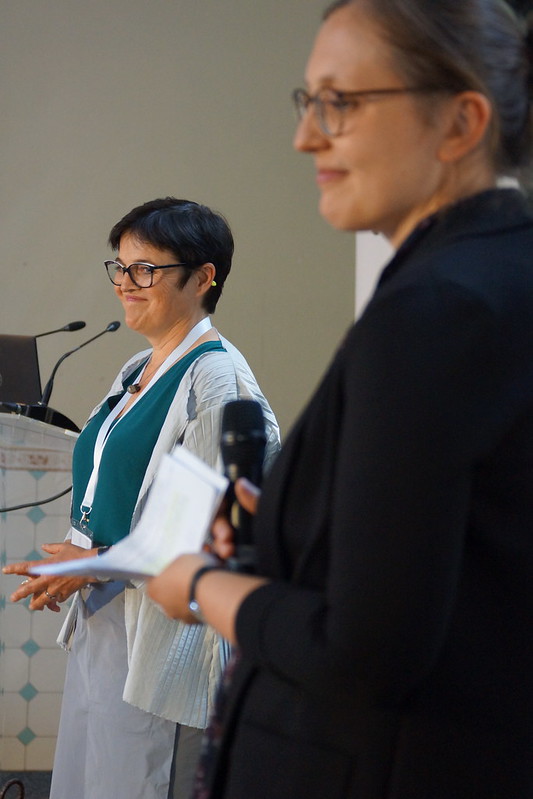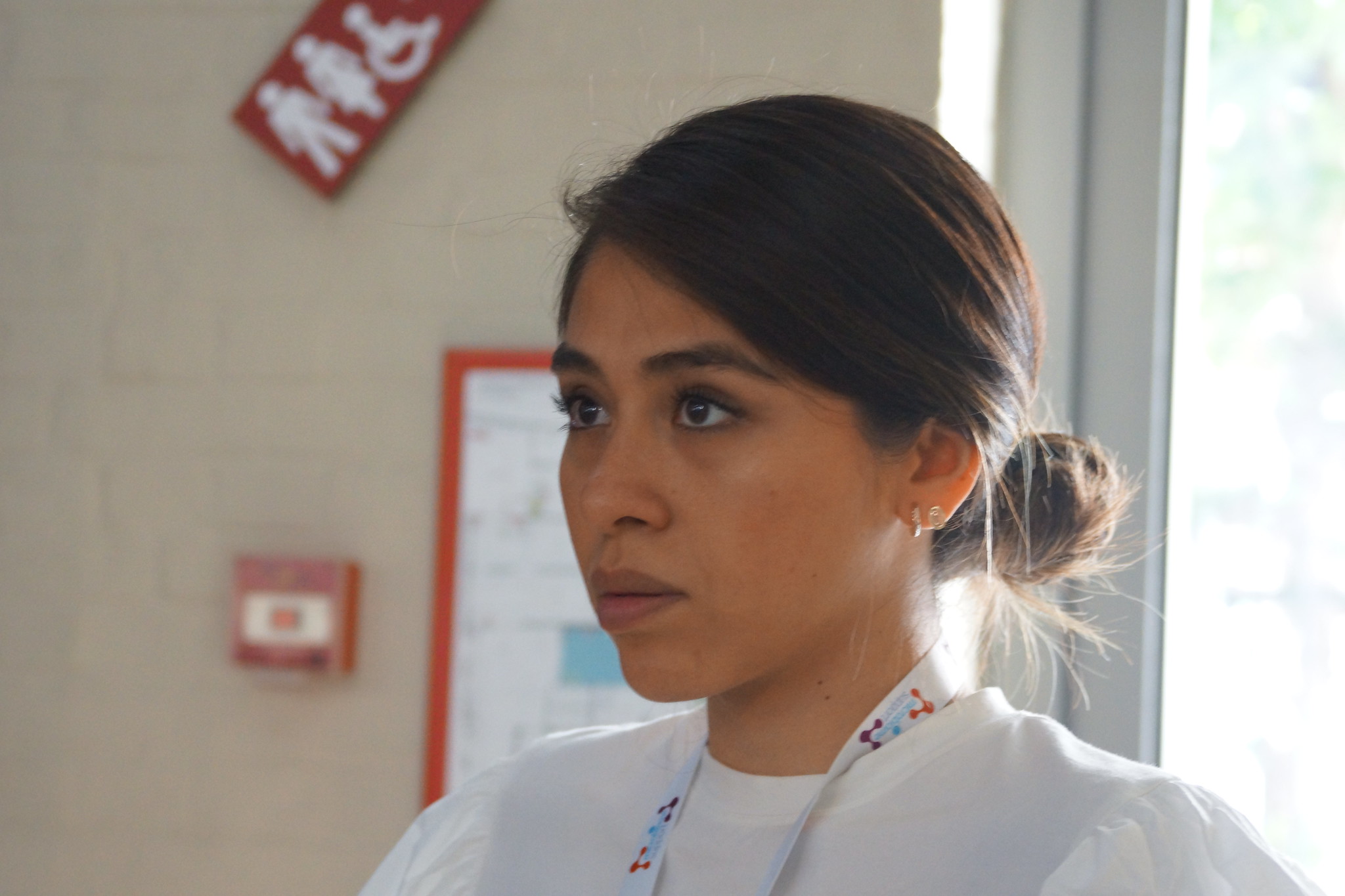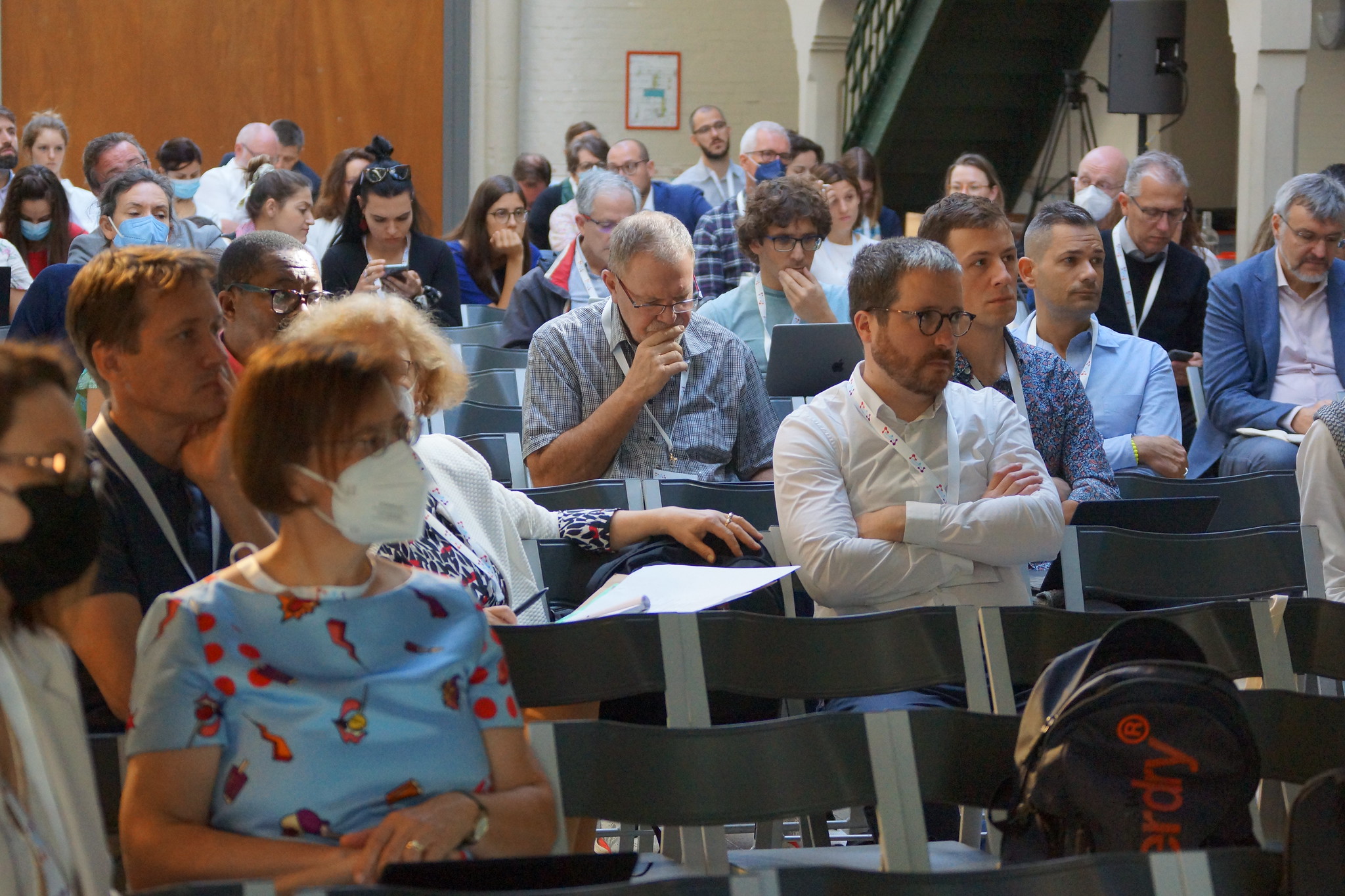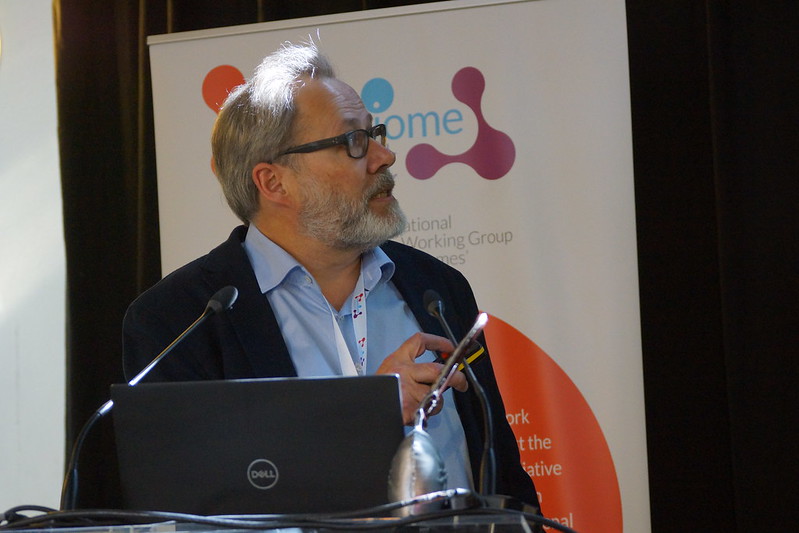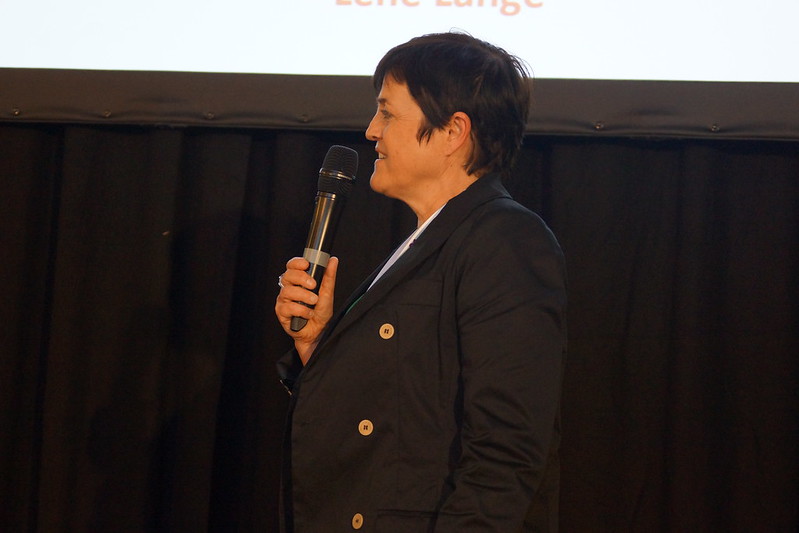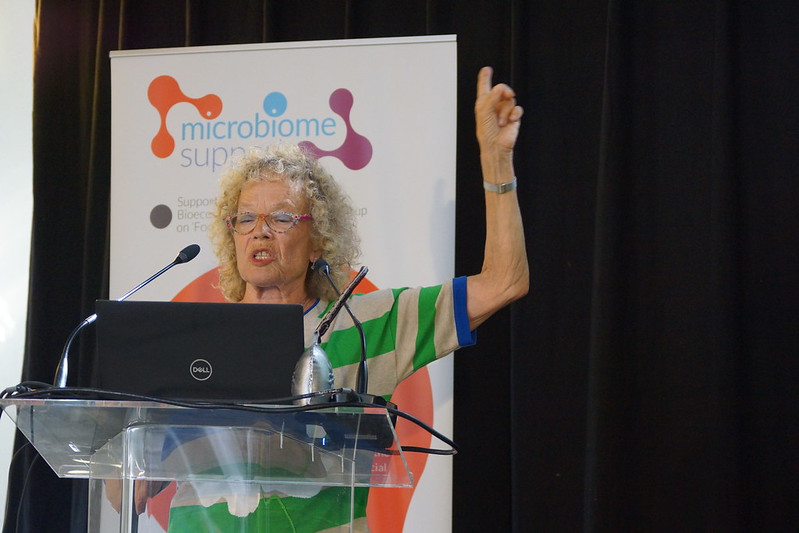The MicrobiomeSupport Final Conference took place in Brussels on 27, 28 and 29 June 2022. Learn here more about the topics, speakers and outcomes of the event!
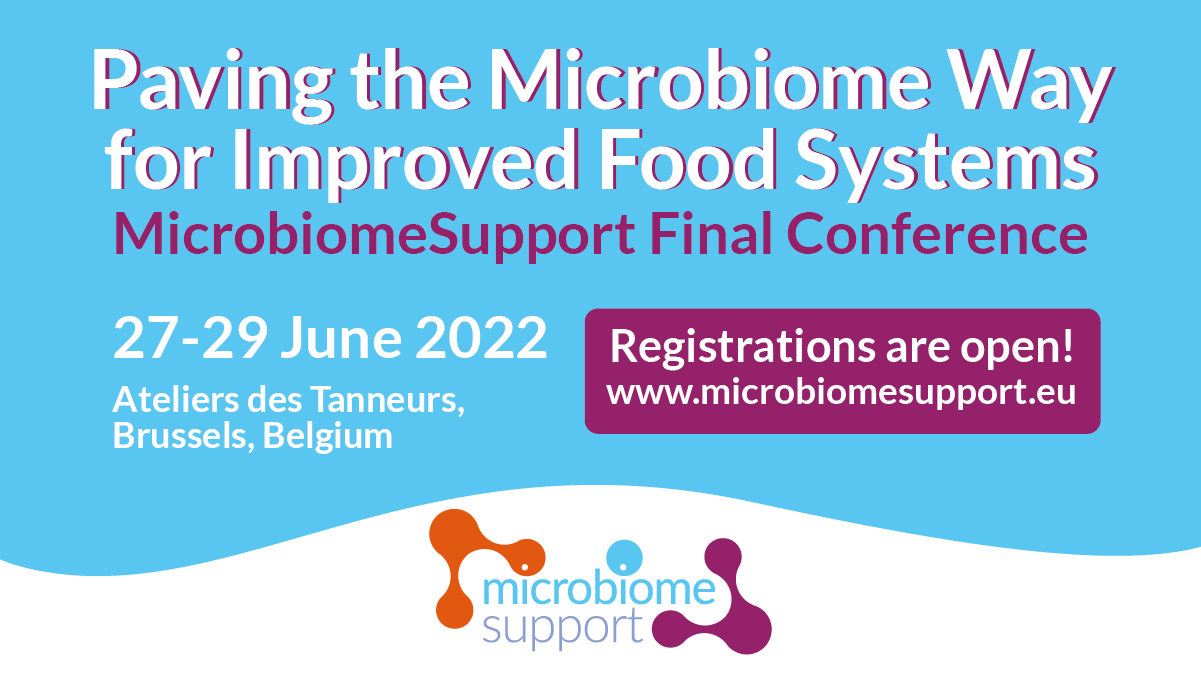
Overview & Outcomes
Over the past four years, the EU-funded project MicrobiomeSupport has worked diligently to align, structure and boost research and innovation in the microbiome field. Before officially ending in October 2022, MicrobiomeSupport held its final event in form of a 3-day high-level conference around the theme “Paving the Microbiome Way for Improved Food Systems”. The event took place in an entirely in-person format in Brussels and gave participants the chance to learn about highlights from the project and uncover the potential of microbiomes in different thematic sessions.
The conference was attended by over 110 people from over 20 countries worldwide and saw high-quality exchanges between policy, industry and scientific stakeholders on pathways for microbiomes to contribute to the urgently needed food system transformation to deliver on healthy, sustainable, safe and resilient foods. Attendees had the chance to learn from the greatest experts in the field, being informed about up-to-date research data on microbiomes in different types of environments (soil, plants, aquatic environments, animals, humans), and participate in discussion with governmental and institutional representatives on new policy approaches, innovation strategies and economic aspects around food system microbiomes. The event also provided fertile ground and numerous opportunities to exchange and build new partnerships, including a networking reception on the first day. It was a great pleasure for the project to welcome a plethora of speakers from European countries, but also representatives from the IBF (International Bioeconomy Forum) countries, bringing in also the international perspective on microbiomes and promoting exchange on a global level.
One of the highlights of the event was the contribution of John Bell, the Director of Healthy Planet at the European Commission, who described microbiome research as “one of the great motors of change” and emphasized the enormous opportunities it offers for shaping society, ecology and the economy. He also hinted, however, at the great responsibility facing the microbiome community and stated that this is a critical moment to act and set the direction for the future. He encouraged continuous investment and attention to the microbiome field, making use of the next round of Horizon Europe calls and engaging in the EU Missions.
A further highlight was a roundtable discussion on the second day, which featured representatives from industry, the European Commission, FAO and the MicrobiomeSupport consortium. The aim of the roundtable was to explore how the food system’s microbiome can help deliver on current, pressing socio-economic and environmental challenges, whilst acknowledging that the scientific field at large is still underdeveloped compared to the potential it holds. In this matter, one of the key considerations was the dual impact of COVID-19 and the war between Russia and Ukraine on our food system’s resilience and food security, and it was explored how microbiome-based solutions can be used to respond to these new and existing threats. Resulting reflections and conclusions from the roundtable will be used in a scientific publication focused on food security.
Who was the conference for?
The MicrobiomeSupport conference welcomed representatives of microbiome- and food system related fields, i.e. of the following stakeholder groups:
- The scientific community & academia
- Industry
- Policy (funding & regulatory bodies)
- Public health authorities
- Opinion leaders
- Media
![AdobeStock_216710755 [Converted]-01](https://www.microbiomesupport.eu/wp-content/uploads/2022/07/AdobeStock_216710755-Converted-01.png)
Meet our Keynote Speakers
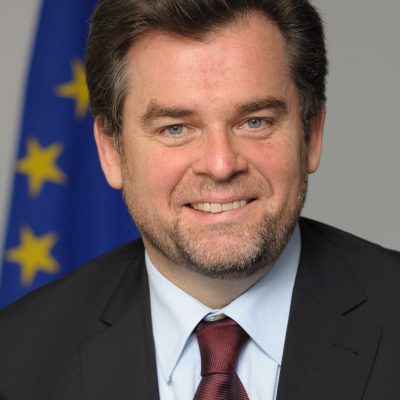
Dr. John Bell
Director Healthy Planet, DG Research & Innovation at European Commission
Dr John Bell is the ”Healthy Planet” Director in DG Research & Innovation. He is responsible for leading the Research and Innovation transitions on Climate Change within planetary boundaries, Bioeconomy, Food Systems, Environment and Biodiversity, Oceans and Arctic, Circular Economy, Water and Bio-based innovations. This includes harnessing the investments of €10 billion Horizon Europe, Circular Bioeconomy, the EU Bioeconomy Strategy, and Governing Board of €3.7 billion in Bio-based Industries Joint Undertaking, as well as delivering policy initiatives as FOOD2030, and the All Atlantic Ocean Research Alliance.
Justus Wesseler
Chair in Agricultural Economics and Rural Policy at Wageningen University, The Netherlands
Justus Wesseler holds the chair in Agricultural Economics and Rural Policy at Wageningen University, The Netherlands. He has a degree in agricultural, environmental and natural resource economics from the University of Göttingen, Germany. His research work is on bioeconomy economics and policies. The major focus is on the contribution of value chains to improve sustainability and the impact of new technologies and regulations on the value chain in this respect.
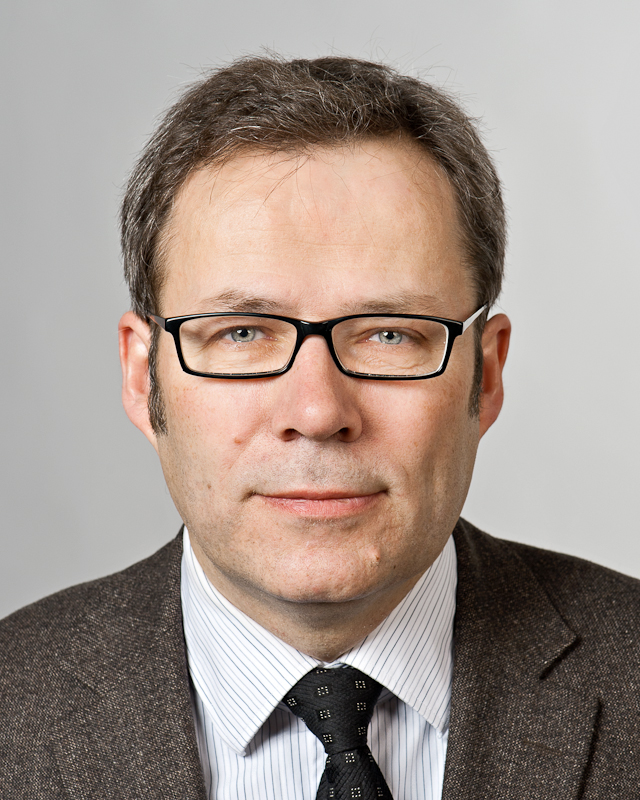
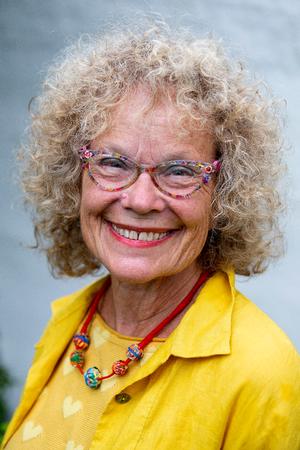
Lene Lange
Company Founder and Owner at LLa-Bioeconomy, Research & Advisory, Denmark
Lene Lange has been full professor at three universities and has been Research Director in both public sector (Aalborg University) and private sector (Novozymes). She is a highly active researcher, finding new enzymes for upgrading food processing waste to delicious food, improving gut-health. She also holds a portfolio of public advisory roles within Circular Biobased Economy (to EU Commission, Danish government and Nordic Council of ministers).
Gail Rosen
Professor of Electrical and Computer Engineering, Drexel University, USA

Agenda & Presentations
Photo Gallery
Photo Contest Winners
One of MicrobiomeSupport’s main aspirations has been to establish a dialogue between multiple stakeholders, actors and the public to raise awareness and increase the knowledge exchange on microbiomes. In line with this mission, the project has launched a photo contest as part of this conference, engaging young researchers in microbiome-related fields to team up with “microbiome enthusiasts” – people who share their interest in the fascinating micro-world and who have no scientific background – and send in their best photograph showcasing the beauty, diversity and ubiquity of microbiomes as we find them in our surroundings, along with a brief story. Here we introduce the winning teams. You’re going to love their creative results!

Close encounters of an endophyte-tomato kind…the Michelangelo way
Crop plants, during their lifetime, are exposed to a variety of stresses and to cope with them, they establish beneficial strategies with microorganisms. Endophytic filamentous fungi help host plants during stress conditions. Fusarium solani strain K (FsK) is a beneficial endophytic fungus that can colonize tomato’s root system (Solanum lycopersicum) and provide defense against drought stress, by alleviating the negative effects. FsK helps the host to grow and boost the yield under drought conditions.
Team:
Maria Feka, PhD student, Dept. of Biochemistry and Biotechnology, University of Thessaly, Greece
Eleni Lampronikou, Microbiome Enthusiast from Greece
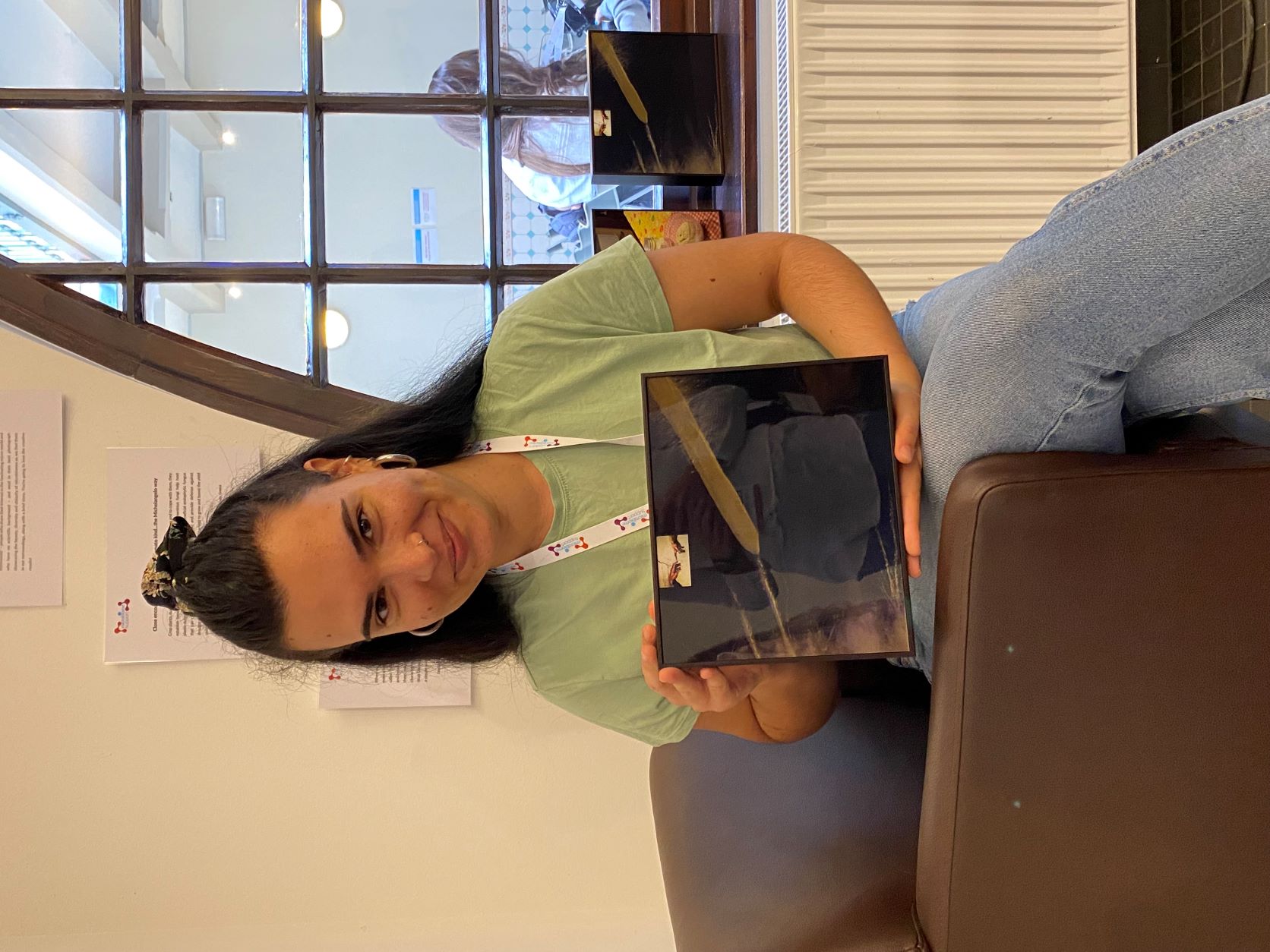
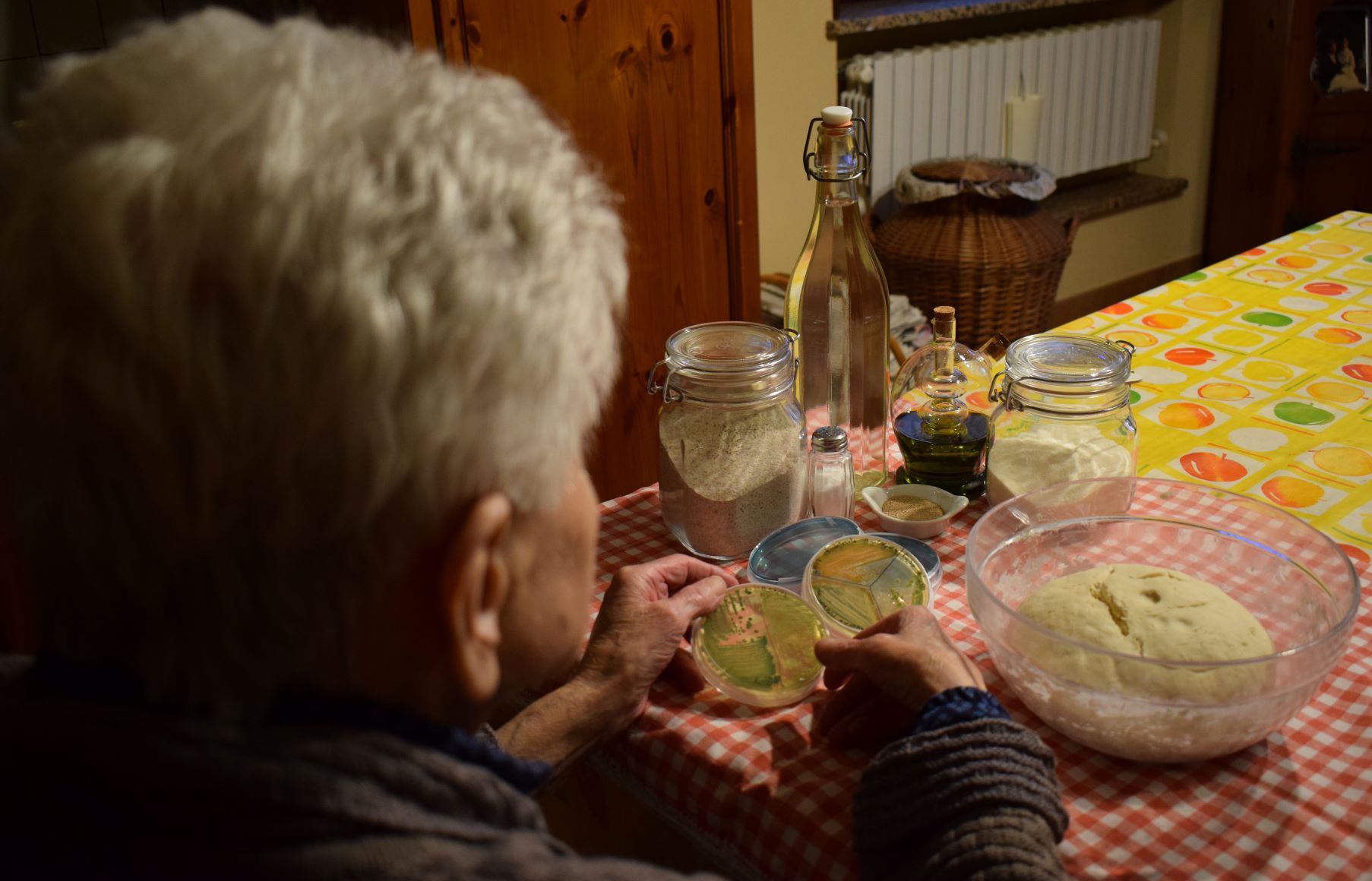
“Ζυμαράκι”
When we were little, we were visiting grandma’s house in the mountainous village. She used to make a huge amount of dough, using a mother kept each time, in an enormous wooden container called “σκάφη”. She was covering it with a woolen blanket and she was letting swell for hours and hours. Then she was dividing in medium soft balls placing in a round griddle. She was letting them reform and she was baking them in the wood oven. The smell, softness and unique characteristic taste of that cooked dough “ψωμί” is to date our “Ratatouille” (Pixar Animation – Walt Disney). Now was our time to explain to her the way these yeasts were amazing us in such a simple way.
Team:
Dimitra Tsoureki, PhD candidate, Dept. of Agricultural, Forest & Food Sciences, University of Torino, Italy
Domenica Fino, Microbiome Enthusiast from Italy
